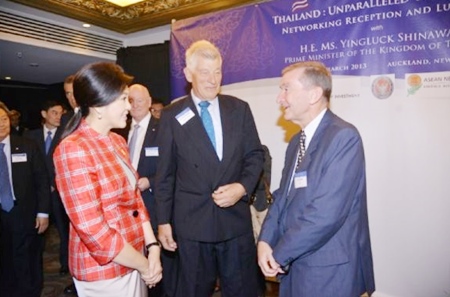BANGKOK, March 21 – Thailand should achieve a 2-3 per cent economic growth this year if a new government takes office in the second quarter, according to the University of the Thai Chamber of Commerce.
Thanawat Polvichai, director of the university’s Economic and Business Forecast Center, said the ongoing political conflicts may contribute to a 1 per cent deficit in the Thai economy in Q1.

Farmers have yet to receive rice payments under the government’s pledging scheme and rubber prices have been declining – depleting farmers’ purchasing power while confidence among consumers and the business sector has fallen.
Thailand has lost investment and consumption opportunities amounting to Bt420-430 billion since late last year, Dr Thanawat said.
The opportunities lost were mainly from the Bt350 billion in water management projects, with projects valued at Bt100 billion due to be launched this year, and this year’s initial investment of Bt100 billion from the Bt2 trillion infrastructure development scheme.
Thailand also lost opportunity from consumers and tourism at Bt200 billion, or an average of Bt40-50 billion a month, he added.
Dr Thanawat said the cancellation of the emergency decree will psychologically boost tourism and peoples’ spending, and it is predicted that the country will enjoy a 1-2 per cent economic growth in the second quarter.
If Thailand has a new government in the second quarter, the economy in the second half of the year should expand 4-5 per cent, contributing to a 2-3 per cent growth for the entire year, he said.
If Thailand fails to get a new government from mid-year to late this year, plummeting confidence among investors will result in an economic expansion at less than 3 per cent, he said.
If the political conflicts prolong, the Thai economy will suffer a 1 per cent deficit but most sectors are optimistic that the situation will improve and the economy will spring back in the third quarter, Dr Thanawat said.
This year’s exports will increase 3.5-5.5 per cent and inflation at 2.2-2.7 per cent, assuming that the global economy will strengthen and investment in the public sector will be active in the second half of the year.




